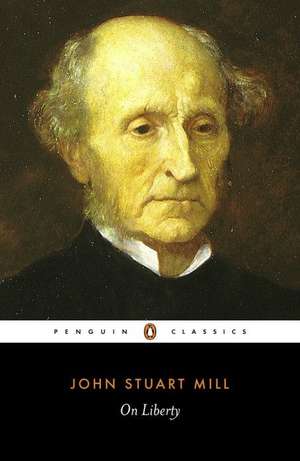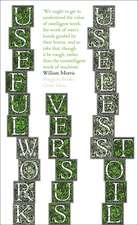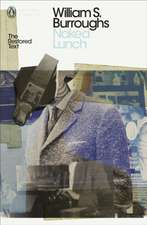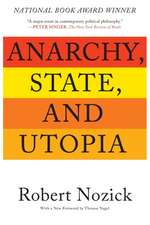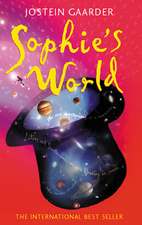On Liberty
Autor John Stuart Mill Editat de Gertrude Himmelfarben Limba Engleză Paperback – 26 mai 1982
The editor of this essay, Gertrude Himmelfarb records responses to Mill's books and comments on his fear of 'the tyranny of the majority'. Dr Himmelfarb concludes that the same inconsistencies which underlie On Liberty continue to complicate the moral and political stance of liberals today.
Preț: 51.82 lei
Preț vechi: 62.65 lei
-17% Nou
9.92€ • 10.16$ • 8.25£
Carte disponibilă
Livrare economică 28 februarie-11 martie
Livrare express 11-15 februarie pentru 26.79 lei
Specificații
ISBN-10: 0140432078
Pagini: 192
Ilustrații: illustrations
Dimensiuni: 129 x 198 x 11 mm
Greutate: 0.15 kg
Editura: Penguin Books
Colecția Penguin Classics
Locul publicării:London, United Kingdom
Notă biografică
Gertrude Himmelfarb is Professor of History at the City University of New York and a Fellow of the American Academy of Arts and Sciences.
Descriere
This new edition of On Liberty is the first to combine John Stuart Mill's influential work with a set of relevant primary sources by Mill and his contemporaries. Alan Kahan's introduction provides students with crucial background on nineteenth-century British politics and society; intriguing biographical details about Mill's early life, intellectual career, and marriage; and thought-provoking discussion of the core issues of autonomy and freedom that On Liberty addresses. The related primary documents - including an excerpt from Mill's famous proto-feminist treatise On the Subjection of Women - offer useful insights into the philosopher's intellectual outlook as well as a fascinating view into On Liberty's rather stormy reception. Excerpts from Mill's diary and autobiography, contemporary reviews of On Liberty, and appreciations of Mill by his colleagues all deepen students' understanding of this remarkable work and its equally remarkable author. Headnotes and gloss notes to the documents, a selected bibliography, a chronology of Mill's life, and a set of questions for consideration offer additional pedagogical support.
Textul de pe ultima copertă
Discussed and debated from time immemorial, the concept of personal liberty went without codification until the 1859 publication of "On Liberty." John Stuart Mill's complete and resolute dedication to the cause of freedom inspired this treatise, an enduring work through which the concept remains well known and studied.
The British economist, philosopher, and ethical theorist's argument does not focus on "the so-called Liberty of the Will but Civil, or Social Liberty: the nature and limits of the power which can be legitimately exercised by society over the individual." Mill asks and answers provocative questions relating to the boundaries of social authority and individual sovereignty. In powerful and persuasive prose, he declares that there is "one very simple principle" regarding the use of coercion in society one may only coerce others either to defend oneself or to defend others from harm.
The new edition offers students of political science and philosophy, in an inexpensive volume, one of the most influential studies on the nature of individual liberty and its role in a democratic society."
Cuprins
PART ONE: INTRODUCTION: JOHN STUART MILL AND HIS WORK
Who Was John Stuart Mill?
Mill's Childhood and Early Career
New Influences on Mill and On Liberty
Mill in Context
On Liberty
PART TWO: THE DOCUMENT: ON LIBERTY
PART THREE: RELATED DOCUMENTS
1. John Stuart Mill, Diary, January–April, 1854
2. John Stuart Mill, Autobiography, 1873
3. John Stuart Mill, On the Subjection of Women, 1869
4. London Quarterly Review, Notice of On Liberty, October 1859
5. Leslie Stephen, Social Macadamization, Fraser's Magazine, August 1872
6. Southern Review, Review of On Liberty, July 1867
Appendixes
A Chronology of Important Events in the Life of John Stuart Mill (1806–1873)
Questions for Consideration
Selected Bibliography
Recenzii
Caracteristici
2 The related primary documents — including an excerpt from Mill's famous proto-feminist treatise On the Subjection of Women — offer useful insights into the philosopher's intellectual outlook as well as a fascinating view into On Liberty's rather stormy reception
3 Excerpts from Mill's diary and autobiography, contemporary reviews of On Liberty, and appreciations of Mill by his colleagues all deepen students' understanding of this remarkable work and its equally remarkable author
